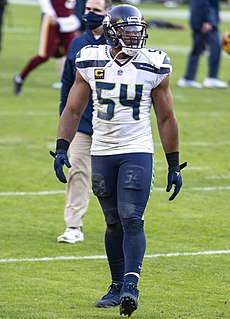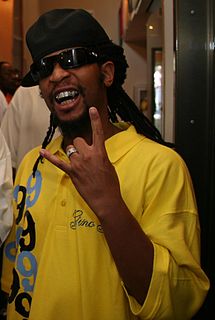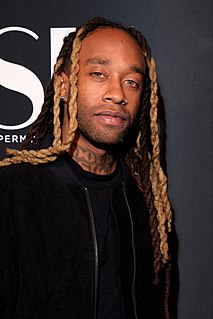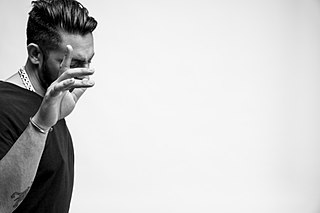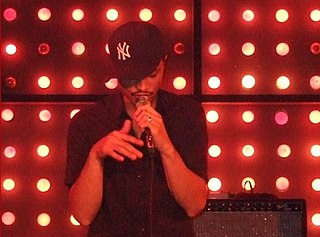A Quote by Bobby Wagner
I just feel like that '90s era was pretty special from all aspects. Whether it was hip-hop, R&B, it was a lot of music back then that everyone could relate to and listen to.
Related Quotes
I've got all of the old school vinyls from the '70s - even further back, like the jazz music in the '40s, '50s, '60s. Then I've got all the '80s stuff underground, hip-hop when hip-hop really first started. The '90s stuff. All of the good stuff, because I'm really into music, and it helps me create new songs now.
Socially, hip-hop has done more for racial camaraderie in this country than any one thing. 'Cause guys like me, my kids - everyone under 45 either grew up loving hip-hop or hating hip-hop, but everyone under 45 grew up very aware of hip-hop. So when you're a white kid and you're listening to this music and you're being exposed to it every day on MTV, black people become less frightening. This is just a reality. What hip-hop has done bringing people together is enormous.
My definition of hip hop is taking elements from many other spheres of music to make hip hop. Whether it be breakbeat, whether it be the groove and grunt of James Brown or the pickle-pop sounds of Kraftwerk or Yellow Magic Orchestra, hip hop is also part of what they call hip-house now, or trip hop, or even parts of drum n' bass.
As an artist, I always just want to grow as a songwriter. I listen to a lot of music. I listen to music all the time, whether it's hip-hop or soul or rock or whatever. I'm always listening to music and trying to learn from other songwriters and how they tap into certain emotions and communicate more clearly.
You have a lot of educating to do hip-hop wise in Europe. When you tour, when you go out there, most of the people that come see you at the venue listen to a lot of different kinds of music, not only hip-hop; they're not heads. From time to time you're going to do a little concert in front of three or four hundred people that are only hip-hop heads and they're going to understand and know all about the gimmicks and the swagger but the rest of the people are just regular European people that listen to pop [or] rock & roll.
A lot of the commercial expression of hip-hop leaves a lot to be desired - but then, there's a lot of whack gospel music, but I'm not leading a crusade against it. Of course, the vices of hip-hop are far more influential, I understand. But the good that hip-hop transmits, the power of the culture to rally the best of our protest, and uplift, and resistance, traditions, is often unfairly overlooked.
In this time, we incorporate money and media, and it's split up like apartheid, where when you say "hip-hop," you think just rap records. People might have forgot about all the other elements in hip-hop. Now we're back out there again, trying to get people back to the fifth element, the knowledge. To know to respect the whole culture, especially to you radio stations that claim to be hip-hop and you're not, because if you was a hip-hop radio station, why do you just play one aspect of hip-hop and rap, which is gangsta rap?
